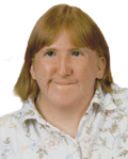
Personal Perspectives
Words of Wisdom Wednesday: Non-Profit Organization Explores The Road Less Traveled.
How one organization goes off the beaten path
Posted January 6, 2010
This week, I got to chat with Lance Blair, the founder of Disabled Explorers, a non-profit organization called Disabled Explorers. Using independent, individualized, backcountry four-wheel-drive travel, the organization takes those with disabilities off the beaten path to show them the world.
Tell me a bit about your background and how the organization came about.
A drunk driver forever altered the course of my life when he struck my motorcycle and shattered my hip, resulting in the loss of my lower left leg below the knee. At eighteen years old, I had a colostomy bag and used a wheelchair. Luckily for me, within six months the colostomy was reversed, and I had a shiny new leg. The past twenty-plus years have been worth every bit of the long intensive care stay, multiple surgeries and pain. As an amputee. I have come in contact with amazing people, wanted to do more and go farther and come to value my time on Earth to a greater degree than I would have otherwise. While I would never recommend a traumatic accident to anyone, I know the trial by fire forged me into a stronger person.
Disabled Explorers was founded to enable other disabled people the same independent backcountry travel experiences that I treasure. Enjoyment of remote areas, historic sites and ancient ruins should not depend on someone else to build facilities if we can find solutions to allow free and independent travel.
We started with a four-wheel-drive SUV and now have the Wheelchair Accessible Van for Expeditions. The W.A.V.E. and its volunteer support give people with physical mobility challenges a chance to drive to those places that have not been accessible and may never be.
Our program is not a "tour bus." The participant is most often the driver, is part of the team and is empowered by the acceptance of the able-bodied along on the adventure. Cooking, cleanup, setup and tear down are equally shared by all regardless of physical challenge.
What do you think is the biggest stereotype or misconception about people with disabilities? Why?
That a person has to learn to accept limitations and that dependence on a government or other authority to choose where you will be able to travel is just how things are.
The USA is a country that thrives on choice and a desire to live one's life to the fullest, yet it is assumed that the disabled person will no longer have dreams and aspirations due to their physical challenges or must give them up. Disabled Explorers strives for the day when someone in a wheelchair making it to the top of a mountain is normal enough not to be newsworthy.
How can people - both those who are disabled and those who aren't - work to combat those stereotypes?
The disabled combat stereotypes by not giving into them, looking for solutions and creating the solutions themselves if need be. The able-bodied need to combat stereotypes by seeing the person beyond the disability -- the same heart, mind and soul as they have.
What do you think will be the biggest issues facing people with disabilities in 2010?
The reduction in government and overall spending will mean fewer support services and resources. That is one reason we work to enable the disabled to have independent travel to remote areas and to not wait for a wheelchair ramp, toilet or campsite.
If you could tell society one thing about disabilities, what would it be and why?
That the story within the disabled person is worth hearing, that the physical challenges faced often forge a stronger soul and that friendship is formed with an individual not a classification.
Is there anything else you think I should know?
Disabled Explorers is working hard in 2010 to reach out to our young military disabled and reach into amazing difficult-to-travel areas. We want to work with people early in the rehabilitation process before the stereotype is set and enable them to travel to places most would say are beyond the grasp of physically challenged individuals.

